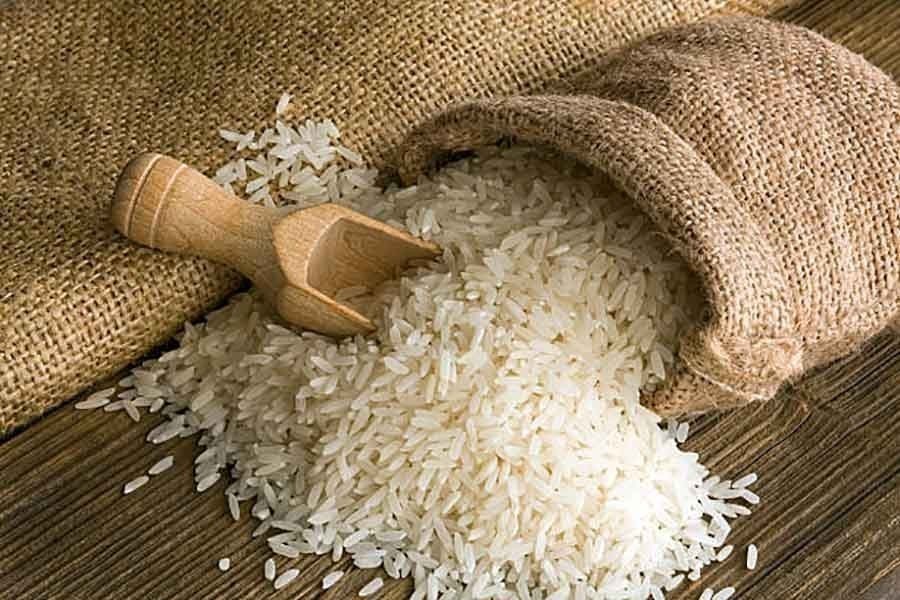
Published :
Updated :

The delay in data delivery by government statistical agencies is hindering the formulation of a timely rice import policy, according to officials and experts.
Following the massive floods in the country's southeast and several other districts, the agriculture ministry has initially predicted a crop loss of 1.0 million tonnes in the affected areas.
Due to the loss and damage to seedbeds, coastal regions have struggled, with over 25,000 hectares of seedbeds washed away, along with 0.32 million hectares of standing Aman and Aus crops.
Currently, it is the peak season for Aman cultivation, which will conclude in the next seven days.
Late planting will be nearly impossible in the flood-affected districts, officials with the Department of Agricultural Extension, Md Mosleh Uddin, said a former director of the Department of the Agricultural Extension.
He said the production data from the last Boro season, which ended in June, is now crucial for policymakers and other stakeholders to initiate an immediate import policy.

An official at the Directorate General of Food (DGoF) told the FE that his office has been able to purchase above 1.45 million tonnes of rice and paddy so far under its Boro procurement drive.
He said time has also been extended to meet the target of 1.7 million tonnes.
He said the food ministry now needs data of Boro season rice production so that it could prepare for appropriate timely import policy, he said.
But, the Bangladesh Bureau of Statistics (BBS) has yet to deliver the Boro production data.
The BBS only released Aman production figures last month on its website, long after the harvest concluded in January last, according to BBS sources.
Officials at the BBS Agriculture Wing said that they are trying to release the data as quickly as possible this year, given the urgent need.
The Boro production data of FY'23 was released by BBS in February 2024, long after eight months of the harvest.
When contacted, Abdul Kalam Azad, director of the Agriculture Wing at the BBS, told the FE that the people's revolution in July-August and the subsequent floods in several districts created some obstacles.
"We have collected most of the data, except from some of the flood-affected districts, which will be delivered soon," he said.
Azad also mentioned that Aman production reached an all-time high of 16.6 million tonnes in the last financial year, marking a record 7.8 percent growth over its previous year.
He said that preliminary statistics indicate that Boro production also saw a bumper yield in FY'24.
When asked about the delay in data for Aman, Aus, onion, and potato production, he cited manpower shortages and the need to ensure the accuracy of the data.
SM Nazer Hossain, vice-president of the Consumers Association of Bangladesh (CAB), said that rice prices have increased by Tk 5.0-6.0 a kg in the past month, severely affecting consumers.
He has urged the government to immediately release Boro production data.
He also said the country should import at least 1.0 million tonnes of rice through both government and private channels well before the upcoming Aman harvest by local farmers to be started in full swing from December.
Professor Golam Hafeez Kennedy, a farm economist, told the FE that BBS has previously politicised data, providing manipulated statistics to align with the demands of the dictatorial regime.
He has urged the planning ministry to review and reform the institution, emphasising that authentic data is crucial to address any economic predicament.
Over the next four months, the country will need an estimated 10.0 million tonnes of rice until the beginning of the Aman harvest, he said.
"The government should have an authentic account of the availability of rice. The food, agriculture, commerce and planning ministry should work comprehensively to tackle any possible rice shortage," he said.
Meanwhile, rice prices have risen further by Tk 2.0-3.0 per kg within a week and by Tk 5.0-6.0 a kg over the last month, which millers have attributed to the heavy rain and flooding in July and August in places.
Consumer rights group has also urged the commerce ministry to raise market operation with close coordination with the district administrations in the milling hubs in Pabna, Naogaon, Jaypurhat, Rajshahi, Bogura, Dinajpur, Rangpur, Nilphamari, Jashore and other regions.
Bangladesh produced an all-time high 20.7 million tonnes of rice in the Boro season in the FY'23 while the target was fixed to get 22 million tonnes in FY'24, according to the BBS and DAE.
Boro comprises 55-56 per cent of the total rice production of the country.
tonmoy.wardad@gmail.com


 For all latest news, follow The Financial Express Google News channel.
For all latest news, follow The Financial Express Google News channel.